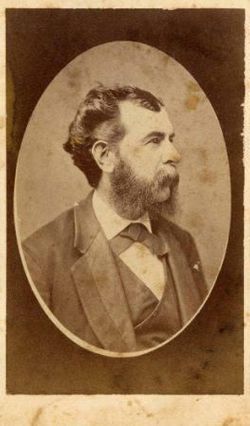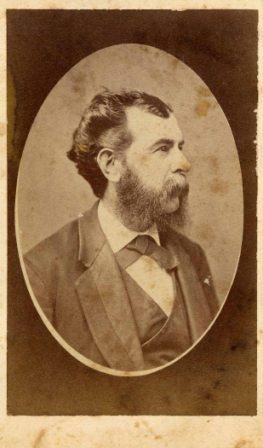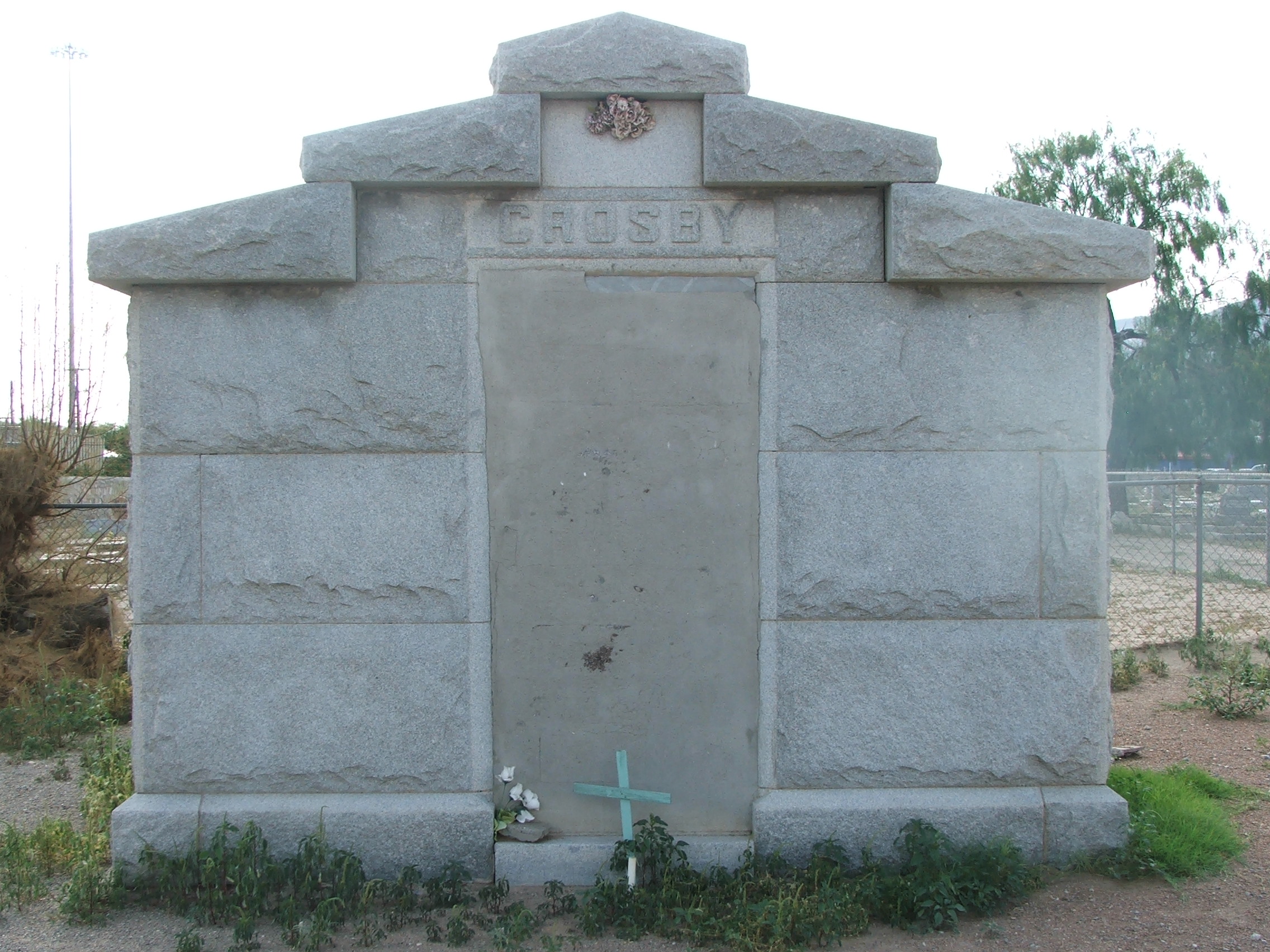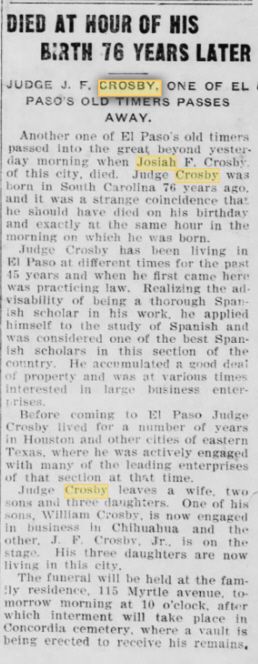Crosby was also a delegate from Texas to the Charleston convention that met on April 23, 1860, to select the Democratic presidential candidate. This representation identified his allegiance to the Southern cause in the imminent outbreak of the Civil War. After the Union victory in 1865, a Union judge in New Mexico ordered the seizure of property belonging to Confederate sympathizers in El Paso. Facing poverty, Crosby used his political and judicial skills to fight the ruling in the New Mexico Supreme Court- and won his property back! He died January 3, 1904, and was buried in Concordia Cemetery.
Crosby was also a delegate from Texas to the Charleston convention that met on April 23, 1860, to select the Democratic presidential candidate. This representation identified his allegiance to the Southern cause in the imminent outbreak of the Civil War. After the Union victory in 1865, a Union judge in New Mexico ordered the seizure of property belonging to Confederate sympathizers in El Paso. Facing poverty, Crosby used his political and judicial skills to fight the ruling in the New Mexico Supreme Court- and won his property back! He died January 3, 1904, and was buried in Concordia Cemetery.
Family Members
Sponsored by Ancestry
Advertisement
Advertisement









